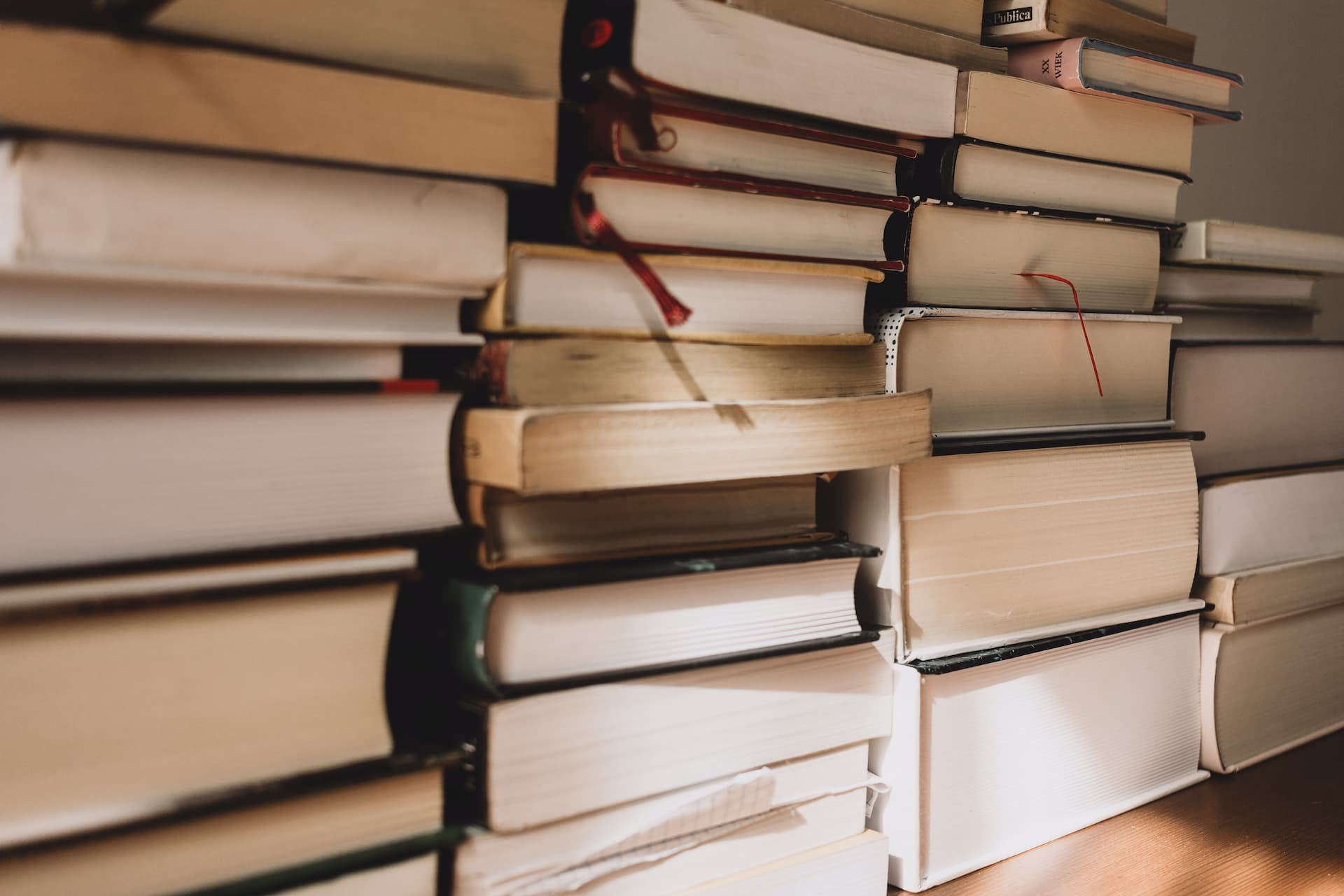
Professors may include available textbooks, library books, videotapes, and their personal books as required reading material as part of their syllabi. These materials are available for short-term loans at the Checkout Desk. The library does not provide copies of journal articles to be kept on reserve.
You must come to the checkout desk with the call number, professor's name, or book title. You may find this information on the library catalog reserves page, where reserve items are arranged by course name or instructor's name. Find the call number you need under the course, write it down, and someone behind the desk will get the book for you. If you are unable to find the information, the staff at the desk will be happy to try to assist you. NOTE: A valid LSU ID is required in order to check out Reserve materials.
The purple, pink, yellow, green and blue slips inside each reserve book will tell you the exact date and time your material is to be returned. Currently there are 5 circulation options:
- 2hrs/ BUILDING USE ONLY: This material circulates for 2 hours and cannot leave the building.
- 2hrs/ Overnight: This material circulates for 2 hours and can be taken out of the library overnight if the item is checked out less than 2 hours before closing.
- 1-Day Reserve: This material will circulate for one 24 hour period. The material will be due the following day at the same time it was checked out.
- 3-Day Reserve: This material circulates for 72 hours. The material is due in 3 days at the same time it was checked out.
- 7-day Reserve This material circulates for 168 hours. The material is due back in 7 days at the same time it was checked out.
The instructors choose which circulation period that they want us to use for each title. You need to speak to your instructor if you disagree with the amount of time given for an item.
- Access Services staff processes reserve book lists on a first come, first served basis. The beginning of the semester is a busy time for the staff, so there may be a delay if an instructor does not submit their reserve book lists before the semester begins.
- The instruction may not have submitted his/her list to the Access Services staff on time.
- Check with the instructor to make sure the material has been requested.

- Louisiana State University, MLIS
- Louisiana State University, M.Ed.
- Louisiana State University, B.S., Chemistry
Book Chapters
Hebert, A. L., & Dunaway, D. J. (2022). Beyond Impact Factor: Understanding Scholarly Metrics and Increasing Exposure. In Sulentic Dowell, M. M., Saal, L. K., Dicarlo, Willingham, T. D. (Eds.), Productivity and Publishing: Writing Processes for New Scholars and Researchers (pp. 171-190). Sage.
Wu, Y., Dunaway, D. J., Lehman, A. (2016). Oil Spill Taxonomy. Oil Spill Impacts: Taxonomic and Ontological Approaches (pp. 29-170). CRC Press.
Wu, Y., Lehman, A., Dunaway, D. J. (2016). Oil Spill Topic Map: Concepts, Relationships, and References. Oil Spill Impacts: Taxonomic and Ontological Approaches (pp. 171-263). CRC Press.
Hebert, A. L., Daugherty, A., Dunaway, D. J. (2016). Maximizing LibAnswers Data to Drive Workflow Processes. (Eds.), Innovative LibGuides Applications: Real World Examples (pp. 105-112). Lanham, Maryland: Rowman & Littlefield.
Dunaway, D. J., McCarley, R. L. (1994). Enhanced metal nucleation with self-assembled monolayers of omega-substituted silanes studied by scanning force microscopy. Interfacial Design and Chemical Sensing (vol. 561, pp. 162-174). Washington: Amer Chemical Soc.
Articles in Refereed Journals
Dunaway, D. J. (2019). Bibliometrics for Faculty Evaluations: A Statistical Comparison of h-indexes Generated Using Google Scholar and Web of Science Data. CODEX, 5(3), 12-29.
Batte, E., Mazur, S., Frank, E., Dunaway, D., Phillips, L. (2019). LOUIS Membership with Open Textbook Network Brings Incentive for Faculty OER Advocacy on Campuses. CODEX, 5(3), 8-17.
Wu, Y., Lehman, A., Dunaway, D. J. (2015). Evaluations of a large topic map as a knowledge organization tool for supporting self-regulated learning. Knowledge Organization, 42(6), 13.
Wu, Y., Dunaway, D. J. (2013). Creating a large topic map by integrating Wandora and Ontopia. Library Hi Tech, 31(1), 64–75. DOI: 10.1108/07378831311303930.
Wu, W., Adams, P., McCarley, R. L., Dunaway, D. J. (1994). Granularity and superconductor-insulator transition in electrochemically anodized Al films. Applied physics letters, 65(9), 1180–1182. DOI: 10.1063/1.112139.
Dunaway, D. J., McCarley, R. L. (1994). Scanning force microscopy studies of enhanced metal nucleation - au vapor-deposited on self-assembled monolayers of substituted silanes. Langmuir, 10(10), 3598-3606. DOI: 10.1021/la00022a037.
McCarley, R. L., Dunaway, D. J., Willicut, R. J. (1993). Mobility of the alkanethiol gold(111) interface studied by scanning probe microscopy. Langmuir, 9(11), 2775-2777. DOI: 10.1021/la00035a007.
(2019) Center for Community Engagement, Learning & Leadership, Happy Award. LSU award.

This form is intended for instructors who would like to place items on reserve so that their students may access them at the checkout desk.
Faculty
Staff


Faculty


Items that may be placed on Reserve
- Any circulating materials owned by LSU Library
- Faculty’s personal copies of books (2hr, building use only)
- Journal articles owned by the libraries
- Course syllabus and class notes
Items that may NOT be placed on Reserve
- Book Chapters
- Books obtained through Interlibrary Loan
- Non-Circulating items
- Materials from other public/ academic libraries
Reserve Item Loan Periods
- 2 hours - Building Use Only
- 2 hours - Overnight
- 1-Day Reserve
- 3-Day Reserve
- 7-day Reserve
Policies
- LSU Libraries reserve units will place materials on course reserve that comply with copyright law and its own internal policies.
- Requests for materials to be put on reserve should be submitted at least three weeks before the first day of class although requests are accepted throughout the semester.
- Faculty members must supply their E-Mail address upon submitting their reserve list.
- Books that are requested and are checked out will be recalled by the library.
- Any books that the library does not own can be ordered by the checkout desk.
- All items will be removed from Reserve at the end of each semester.
- All personal materials and copies will be sent back to each Faculty member’s office through campus mail or will be made available for pick-up.
- Using the online request form will ensure all required information is given.
Faculty


Reserve Item Loan Periods
- 2 hours - Building Use Only
- 2 hours - Overnight
- 1-Day Reserve
- 3-Day Reserve
- 7-day Reserve
Policies
- LSU Libraries reserve units will place materials on course reserve that comply with copyright law and its own internal policies.
- Books that are currently checked out need to be recalled by the Reserve Desk, not the faculty member.
- Any books that the library does not own can be ordered by the Reserve Desk.
- All items will be removed from Reserve at the end of each semester.
Undergraduate students

- Louisiana State University, MLIS
- Louisiana State University, M.Ed.
- Louisiana State University, B.S., Chemistry
Book Chapters
Hebert, A. L., & Dunaway, D. J. (2022). Beyond Impact Factor: Understanding Scholarly Metrics and Increasing Exposure. In Sulentic Dowell, M. M., Saal, L. K., Dicarlo, Willingham, T. D. (Eds.), Productivity and Publishing: Writing Processes for New Scholars and Researchers (pp. 171-190). Sage.
Wu, Y., Dunaway, D. J., Lehman, A. (2016). Oil Spill Taxonomy. Oil Spill Impacts: Taxonomic and Ontological Approaches (pp. 29-170). CRC Press.
Wu, Y., Lehman, A., Dunaway, D. J. (2016). Oil Spill Topic Map: Concepts, Relationships, and References. Oil Spill Impacts: Taxonomic and Ontological Approaches (pp. 171-263). CRC Press.
Hebert, A. L., Daugherty, A., Dunaway, D. J. (2016). Maximizing LibAnswers Data to Drive Workflow Processes. (Eds.), Innovative LibGuides Applications: Real World Examples (pp. 105-112). Lanham, Maryland: Rowman & Littlefield.
Dunaway, D. J., McCarley, R. L. (1994). Enhanced metal nucleation with self-assembled monolayers of omega-substituted silanes studied by scanning force microscopy. Interfacial Design and Chemical Sensing (vol. 561, pp. 162-174). Washington: Amer Chemical Soc.
Articles in Refereed Journals
Dunaway, D. J. (2019). Bibliometrics for Faculty Evaluations: A Statistical Comparison of h-indexes Generated Using Google Scholar and Web of Science Data. CODEX, 5(3), 12-29.
Batte, E., Mazur, S., Frank, E., Dunaway, D., Phillips, L. (2019). LOUIS Membership with Open Textbook Network Brings Incentive for Faculty OER Advocacy on Campuses. CODEX, 5(3), 8-17.
Wu, Y., Lehman, A., Dunaway, D. J. (2015). Evaluations of a large topic map as a knowledge organization tool for supporting self-regulated learning. Knowledge Organization, 42(6), 13.
Wu, Y., Dunaway, D. J. (2013). Creating a large topic map by integrating Wandora and Ontopia. Library Hi Tech, 31(1), 64–75. DOI: 10.1108/07378831311303930.
Wu, W., Adams, P., McCarley, R. L., Dunaway, D. J. (1994). Granularity and superconductor-insulator transition in electrochemically anodized Al films. Applied physics letters, 65(9), 1180–1182. DOI: 10.1063/1.112139.
Dunaway, D. J., McCarley, R. L. (1994). Scanning force microscopy studies of enhanced metal nucleation - au vapor-deposited on self-assembled monolayers of substituted silanes. Langmuir, 10(10), 3598-3606. DOI: 10.1021/la00022a037.
McCarley, R. L., Dunaway, D. J., Willicut, R. J. (1993). Mobility of the alkanethiol gold(111) interface studied by scanning probe microscopy. Langmuir, 9(11), 2775-2777. DOI: 10.1021/la00035a007.
(2019) Center for Community Engagement, Learning & Leadership, Happy Award. LSU award.


